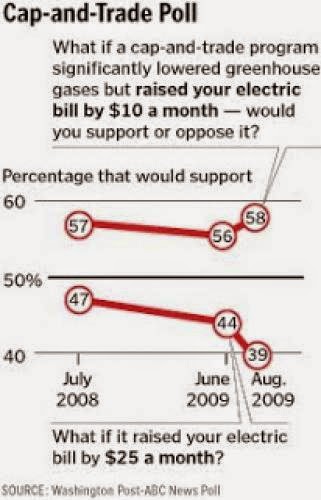
A "Washington Post"/ABC News poll has measured the public's tolerance of higher energy prices stemming from action against global warming.
It turns out the poll's break point matches the argument over the net cost of ACES. The Heritage Foundation has circulated the claim that Waxman-Markey would add 1,500 to a family's annual energy budget. On the more modest end of the scale, the EPA projects a lower figure of 80 to 111 per household.
But the more significant part of the equation isn't the outlay, it's the size of the potential benefit from energy conservation. A recent report from McKinsey ">A report by Environment Northeast, a non-profit think tank, projects that Waxman-Markey would generate 627 million in energy efficiency investment in Delaware, and return 1.882 billion in savings, which is one reason why Delaware isn't waiting for the federal government to act. Governor Jack Markell recently pushed through legislation that would reduce peak electricity demand by 15 percent by 2015 through conservation.
Acting on climate change will create net enormous benefits for energy users. If Waxman-Markey's advocates can get that message through to voters, then support for meaningful action on climate change should carry the day.
Reference: www.garvindirect.com











0 comments:
Post a Comment